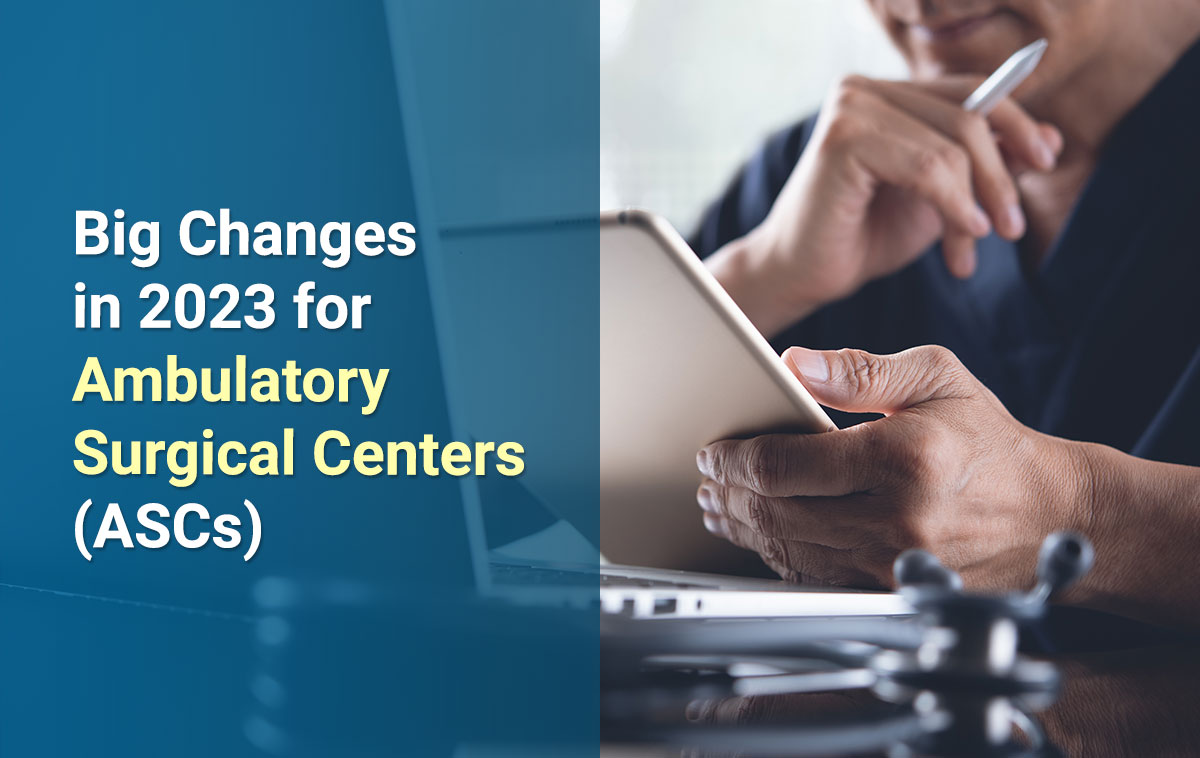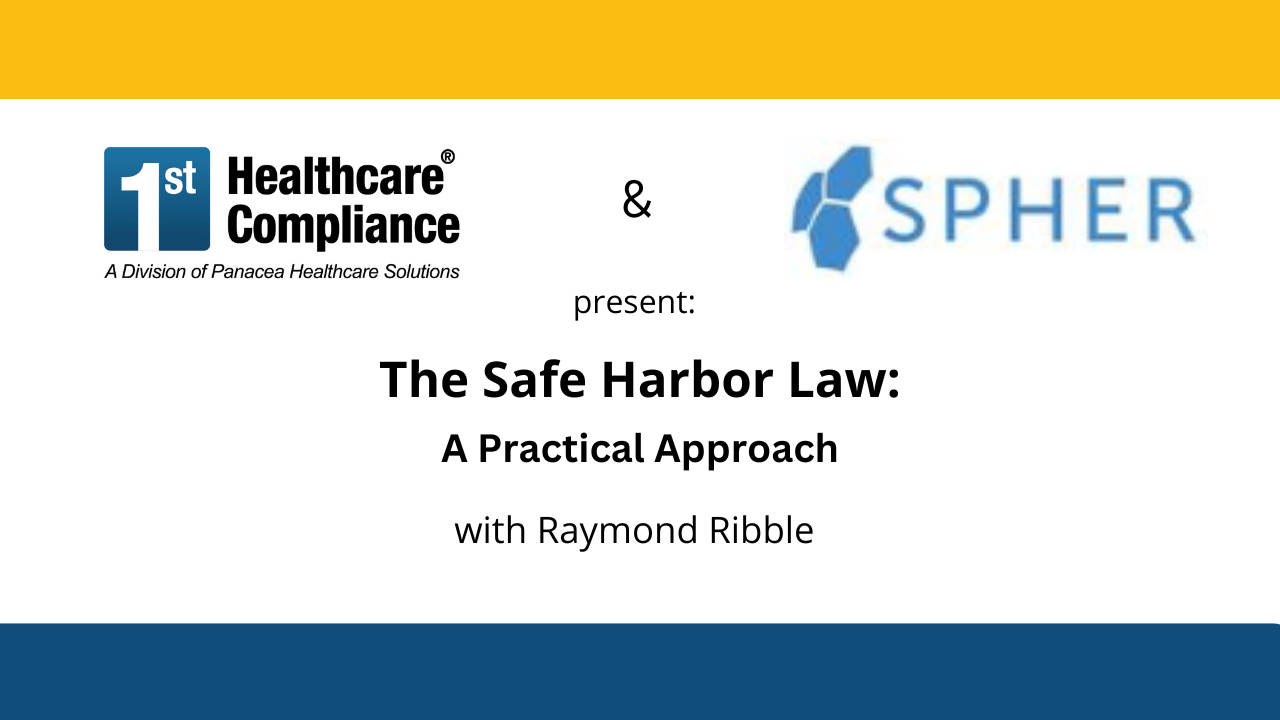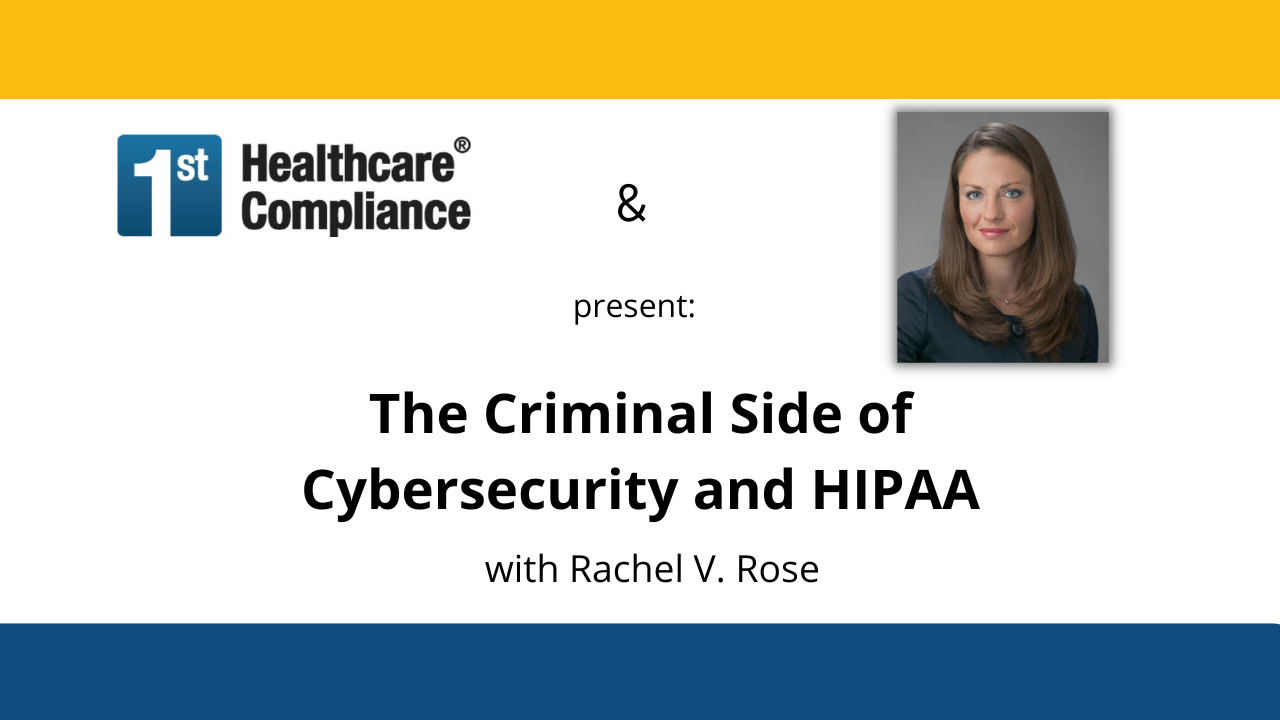
How to Protect Your Healthcare Assets: Q&A
Highly-regarded attorneys Sean McKenna, Lauren Nelson, and Vincent Aiello of Spencer Fane LLP recently held the comprehensive webinar Preserving and Protecting Assets in Healthcare joined by Catherine Short and First Healthcare Compliance. Read Sean, Lauren, and Vince’s lively question and answer session related to enforcement and liability proceedings with asset protection, and explore government and private litigation matters.

Congratulations to our 2022 Presenter of the Year!
Each year thousands of healthcare compliance professionals rely…

Big Changes in 2023 for Ambulatory Surgical Centers (ASCs)
The Centers for Medicare and Medicaid Services (CMS) have created over 50 new C-codes (C7500–C7555) for Ambulatory Surgical Centers (ASCs) that affect many procedures. These codes were created to allow additional payment for packaged services for ASCs. This article highlights the new C-codes that affect Cardiology, Interventional Radiology and Electrophysiology.

The Safe Harbor Law: A Practical Approach
Raymond Ribble is the CEO and Founder at SPHER, Inc. a market-leading compliance analytics, cyber-security solution addressing: HIPAA compliance, State Privacy Laws, and ePHI security threats and our expert presenter for this webinar. HIPAA data breach penalties typically get measured in millions of dollars even following an organization implementing NIST cybersecurity framework measures. With the new HIPAA Safe Harbor Law, HHS and OCR may consider increased penalty mitigation when an organization can demonstrate it has been following established good security practices. Our presentation will examine what are the established security practices for healthcare, and how to pivot your organization's security profile in order to mitigate breach penalties in the event of an event.

A Standing Ovation for the Compliance Super Ninjas of 2022!
What does it mean to be selected as a Compliance Super Ninja?
At…

The Criminal Side of Cybersecurity and HIPAA
Expert presenter, Rachel V. Rose, JD, MBA, principal with Rachel V. Rose – Attorney at Law, P.L.L.C., Houston, TX guides us during this important and informative webinar. Breaches and the lack of the requisite technical, administrative, and physical safeguards can have criminal consequences. While most people are familiar with civil cases, there is the potential for HIPAA violations and ransomware attacks to be prosecuted criminally. The purpose of this webinar is to highlight potential areas of criminal liability, give specific examples, and address mitigation techniques - both before and after a government discovery request or grand jury subpoena emerges.
